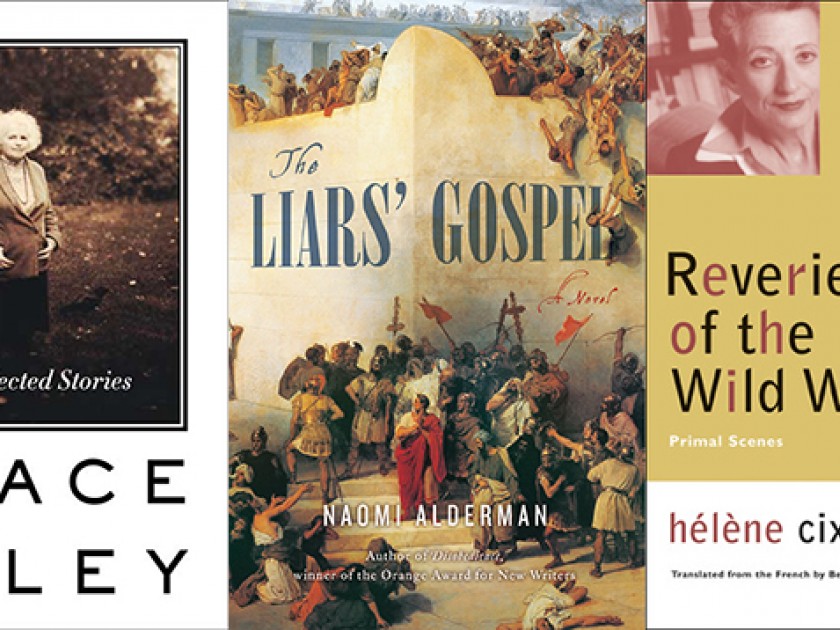
Earlier this week, Devorah Baum wrote about the twelve most stereotypical Jews in literature. Today, she explores five books that counter the “negative” narrative of Jewish literature. She is the author of the book Feeling Jewish (a Book for Just About Anyone), out this week from Yale University Press. She will be blogging here all week for Jewish Book Council’s Visiting Scribe series.
Grace Paley – Collected Stories
Everyone should read Grace Paley. She deals with tough stuff with wit, vitality, and grace, and she tempers what many would consider tragic storylines with an insistence that where there is life there can always be “enormous changes at the last minute.” Unlike the dominant male voices in American Jewish letters, who’ve tended to resist the labeling of either themselves or their fictions as Jewish, Grace Paley showed no such commitment phobia: “I like being Jewish” she once — shockingly — said.
Hélène Cixous – Reveries of the Wild Woman, Primal Scenes
In which the injustices suffered on account of her Jewishness – in the Algeria where she was born and raised, and which she continues to love — become the vital means by which she becomes a singularly creative, original, “wild,” and empathetic voice capable of interpreting, understanding and entering into all sides of every conflict of a (civil) war whose unfolding dynamic officially ascribed those with her ancestry no legal standing at all. Yet it’s on the basis of this nowhere-to-stand that she learns by degrees to feel her way everywhere.
Avivah Gottlieb Zornberg – The Murmuring Deep: Reflections on the Biblical Unconscious
Returning to the ancient Jewish sources accompanied by Avivah Zornberg’s insight and sensibility has been one of my life’s great gifts. By reading Tanach, Talmud and midrash alongside modern literature, psychoanalysis and philosophy, she makes them live, she makes them sing, and she makes them speak directly to you, no matter who you are.
Naomi Alderman – The Liar’s Gospel
Deep knowledge of the Jewish sources of the period when Christ was preaching, teaching, and gaining a following, plus a remarkable ear for the rhythms and melodies of Hebraic scriptures and their exegetical traditions, has enabled this novelist’s distinctly Judaic vision of the dawn of the new religion and of the key personalities involved. Once you’ve read Alderman’s psychologically nuanced, politically aware, and profoundly sympathetic take on Judas (amongst others), you’ll find that the normatively prejudicial telling of religious history in the West has been effectively unravelled.
Simon Schama – The Story of the Jews, Vol 1.
Simon Schama tells Jewish history as it’s never been told before, challenging many of its rehearsed clichés and assumptions and locating Jewish life in far flung and rarely noted corners of the ancient world. He cites, for example, copious evidence that images and aesthetics have played a greater role throughout Jewish history than is normally recognized. With reference to, for example, the beautiful mosaics inlaid on the floors of the archaeological remains of synagogues of antiquity, Schama claims that Jewish lives have been at least as sensual as they’ve been cerebral, and as much in thrall to beauty as to the law.
Devorah Baum is a lecturer in English Literature at the University of Southampton, UK, and affiliate of the Parkes Institute for the Study of Jewish/Non-Jewish Relations. She is the co-director of the documentary feature film The New Man (2016) and the author of Feeling Jewish (a Book for Just About Anyone), published by Yale University Press.